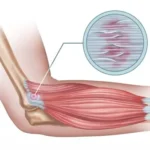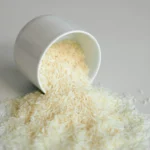Have you ever wondered how you can increase lean muscle mass? If so, you’re not alone! Building lean muscle is a common goal for many individuals, whether it be for fitness, health, or aesthetic reasons. In this article, we will explore effective strategies and tips to help you on your journey towards increasing lean muscle mass. So get ready to learn some valuable information that will empower you to take control of your fitness goals and achieve the physique you desire.

In This Article
ToggleSetting Goals
Setting goals is an essential first step in your journey to increase your lean muscle mass. Determining your desired muscle mass will give you a clear target to work towards. This involves considering factors such as your current body composition and how much muscle you want to gain. It’s important to set achievable goals that are realistic for your body and lifestyle. Setting smaller incremental goals along the way can help you stay motivated and track your progress effectively.
Proper Nutrition
Proper nutrition plays a crucial role in building lean muscle mass. To reach your goals, you need to focus on two key areas: caloric surplus and consuming adequate protein.
Caloric Surplus
In order to build muscle, you must consume more calories than you burn. This is known as being in a caloric surplus. It’s important to strike a balance here, as consuming too few calories can hinder muscle growth, while consuming too many can lead to unwanted fat gain. Calculating your daily calorie needs and aiming for a surplus of around 250-500 calories per day is a good starting point.
Consuming Adequate Protein
Protein is the building block of muscle and plays a vital role in muscle repair and growth. Aim to consume around 1.5-2 grams of protein per kilogram of body weight each day. This can be achieved through lean sources such as chicken, turkey, fish, eggs, dairy products, legumes, and tofu. Protein shakes or supplements can also be a convenient way to meet your protein needs.
Balanced Macronutrient Intake
While protein is crucial, it’s important to remember the role of carbohydrates and fats in your overall nutrition plan. Carbohydrates provide the energy needed to fuel your workouts and support muscle growth, while healthy fats play a role in hormone production and joint health. Aim for a balanced intake of all three macronutrients to support your muscle-building efforts.
Resistance Training
Resistance training is a fundamental component of any muscle-building program. It involves using weights or resistance machines to challenge your muscles and stimulate growth.
Compound Exercises
Incorporating compound exercises into your workouts is highly effective for building muscle mass. These exercises target multiple muscle groups simultaneously and help you develop overall strength and muscle size. Examples of compound exercises include squats, deadlifts, bench presses, and pull-ups. By incorporating these exercises into your routine, you can maximize your muscle gains.
Progressive Overload
To continually build muscle, you need to progressively overload your muscles. This means gradually increasing the amount of weight you lift or the number of reps you perform over time. By challenging your muscles with progressively heavier loads, you stimulate muscle growth and adaptation.
Strength Training vs. Hypertrophy Training
Strength training and hypertrophy training both have benefits when it comes to increasing lean muscle mass. Strength training focuses on lifting heavier weights and performing fewer reps, while hypertrophy training involves lifting moderate weights for a higher number of reps. Incorporating both styles of training into your routine can help you build muscle size and increase overall strength.
Proper Rest and Recovery
Proper rest and recovery are often overlooked but are crucial for maximizing muscle growth and preventing injury.
Importance of Adequate Sleep
Sleep plays a vital role in muscle recovery and growth. Aim for 7-9 hours of quality sleep each night. During sleep, your body releases growth hormones that aid in muscle repair and growth. Lack of sleep can lead to decreased muscle protein synthesis and hinder your progress.
Rest Days
Including rest days in your training schedule is important for allowing your muscles to recover and repair. Overtraining can lead to muscle fatigue, increased risk of injury, and hindered muscle growth. Be sure to have at least one or two rest days per week to allow your body time to heal and rebuild.
Active Recovery
In addition to rest days, incorporating active recovery activities such as stretching, yoga, or light cardio can aid in muscle recovery. These low-intensity activities improve blood flow, reduce muscle soreness, and help prevent stiffness. Remember to listen to your body and adjust your activity level as needed.
Supplementation
While not necessary, certain supplements can support your muscle-building efforts.
Whey Protein
Whey protein is a popular and easily digestible protein supplement that can be convenient for meeting your protein goals. It can be consumed in the form of shakes, bars, or added to meals. Whey protein provides a convenient and efficient way to increase protein intake and support muscle recovery.
Creatine
Creatine is a naturally occurring compound that fuels your muscles during high-intensity, short-duration exercise. It has been shown to enhance muscular strength and promote muscle growth. Creatine supplementation can be beneficial for those looking to increase lean muscle mass, especially during resistance training.
Branched-Chain Amino Acids (BCAAs)
BCAAs are a group of essential amino acids that promote protein synthesis and aid in muscle recovery. They can be consumed before, during, or after a workout to support muscle growth and reduce muscle breakdown. While BCAAs are found in protein-rich foods, supplementation can be beneficial, especially for those following restrictive diets.
Hydration
Proper hydration is essential for maximizing your muscle-building potential.
Importance of Water Intake
Water is involved in numerous bodily functions, including muscle contraction and nutrient transport. Staying hydrated ensures optimal muscle performance, energy levels, and overall health. Aim to drink at least 8 glasses of water per day, or more if you are engaged in intense physical activity.
Hydrating During Workouts
During workouts, it’s important to replenish your fluids to avoid dehydration. Sip on water or a sports drink throughout your training session to maintain optimal hydration levels. This will help prevent muscle cramps, fatigue, and promote better overall performance.
Avoiding Excessive Dehydration
Dehydration can hinder your muscle-building efforts and lead to decreased strength and endurance. It’s important to monitor your hydration levels, especially when exercising in hot or humid environments. Be mindful of your body’s signals and drink water regularly to stay properly hydrated.
Nutrient Timing
Timing your nutrient intake can optimize your muscle-building potential.
Pre-Workout Nutrition
Eating a balanced meal or snack prior to your workout provides your body with the fuel it needs to perform at its best. Aim to consume a meal rich in carbohydrates and protein 1-3 hours before your workout. This will ensure that your muscles have enough energy and nutrients to support intense training.
Post-Workout Nutrition
After your workout, it’s essential to replenish your body with the necessary nutrients to kickstart muscle recovery. Consume a meal or protein shake containing both carbohydrates and protein within 30-60 minutes after your training session. This will help promote muscle repair and growth.
Intra-Workout Nutrition
For longer, high-intensity workouts, fueling your body during exercise can help maintain energy levels and support muscle performance. Consuming a sports drink, energy gel, or electrolyte-rich beverage can provide your muscles with a readily available source of fuel, helping you push through intense workouts and reduce muscle breakdown.
Avoiding Overtraining
Overtraining can have detrimental effects on your muscle-building progress. It’s important to listen to your body and avoid pushing it beyond its limits.
Listening to Your Body
Paying attention to signs of fatigue, decreased performance, or excessive muscle soreness is crucial. If you feel consistently run down or notice a decline in your performance, it may be a sign that you need to take a step back and give your body sufficient rest.
Taking Sufficient Rest Periods
Incorporating rest periods into your training schedule is essential for optimal muscle recovery and growth. Be sure to give your muscles adequate time to heal between workouts, especially when targeting the same muscle group. This will prevent overuse injuries and promote consistent progress.
Deloading Phases
Periodically deloading is an effective strategy to prevent overtraining. Deloading involves reducing the volume or intensity of your workouts for a short period of time. This allows your body to recover and adapt, leading to improved performance and muscle growth. Incorporating deloading phases into your training program can help prevent plateaus and enhance long-term progress.
Staying Consistent
Consistency is key when it comes to building lean muscle mass. Establishing a routine that works for you and sticking to it will yield the best results.
Establishing a Routine
Create a workout schedule that fits your lifestyle and commitments. Whether it’s early morning, during lunch breaks, or in the evening, find a time that you can dedicate consistently to your training. Having a regular routine makes it easier to stay motivated and on track with your goals.
Finding Motivation
Building lean muscle mass takes time and effort. It’s important to find what motivates you and keeps you going. This could be setting specific goals, finding a workout partner, or tracking your progress visually. Find ways to inspire and challenge yourself and keep your eyes on the long-term benefits of your hard work.
Tracking Progress
Tracking your progress is crucial for staying motivated and making adjustments to your training and nutrition plans. Take measurements, record your strength gains, and take progress photos regularly to see how far you’ve come. Celebrate your achievements and use them as fuel to keep pushing forward.
Seeking Professional Guidance
If you’re unsure where to start or want expert advice, seeking professional guidance can be beneficial.
Consulting with a Nutritionist
A nutritionist can provide personalized guidance on your dietary needs and help you create a meal plan that supports your muscle-building goals. They can ensure you’re getting the right balance of nutrients and help optimize your nutrition for optimal results.
Hiring a Personal Trainer
A personal trainer can design a tailored workout program that targets your specific goals and ensures proper form and technique. They can provide guidance on progressive overload, exercise selection, and help you stay accountable and motivated throughout your journey.
Working with a Sports Therapist
If you’re dealing with an injury or experiencing muscle imbalances, a sports therapist can provide specialized care and rehabilitation. They can develop a treatment plan that helps you recover safely and prevent further injuries, ensuring you can continue to work towards your muscle-building goals effectively.
Building lean muscle mass requires dedication, discipline, and a well-rounded approach. By setting achievable goals, focusing on proper nutrition, incorporating resistance training, prioritizing rest and recovery, considering supplementation, optimizing hydration and nutrient timing, avoiding overtraining, staying consistent, and seeking professional guidance, you can maximize your muscle-building potential. Embrace the journey and enjoy the progress that comes with your hard work and commitment.














No comment yet, add your voice below!